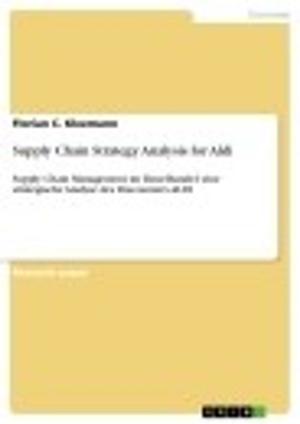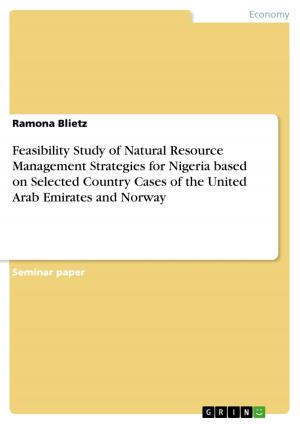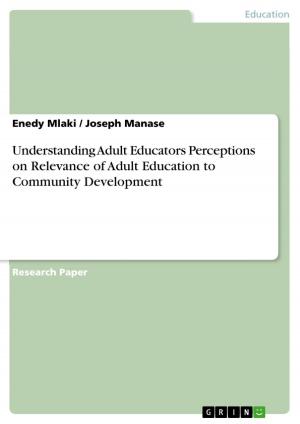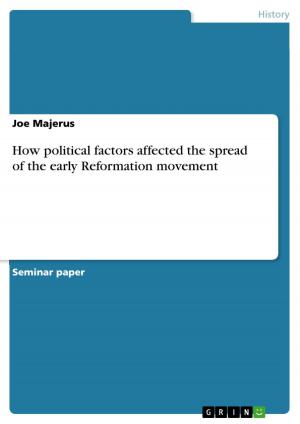Patois and the Rastafarian use of English
Connection between a strong believe and a creole language
Nonfiction, Entertainment, Drama, Anthologies| Author: | Johannes Schiefer | ISBN: | 9783640847891 |
| Publisher: | GRIN Verlag | Publication: | February 28, 2011 |
| Imprint: | GRIN Verlag | Language: | English |
| Author: | Johannes Schiefer |
| ISBN: | 9783640847891 |
| Publisher: | GRIN Verlag |
| Publication: | February 28, 2011 |
| Imprint: | GRIN Verlag |
| Language: | English |
Seminar paper from the year 2008 in the subject English Language and Literature Studies - Linguistics, grade: 2,3, University of Freiburg (Englisches Seminar), course: English in the Caribbean , language: English, abstract: This paper is going to deal with usage of Creole by Rastafarian especially their own new-created Creole and how it is expressed in songs of Bob Marley. But to understand this usage of Creole we need to have some background information. This is why I have to explain the history, Rastafarian symbolism and sum it up to Dread Talk. But before we come to this short overview about religious backgrounds I try my best to give an outline of Patois and what we call Standard English well knowing, that I cannot give a clear definition. Later on I am going to examine two songs of Bob Marley. But it is important to know about his background and the basics of Rastafarianism what we discussed earlier already. A language is always influenced by someone's background, as where he comes from, his education (or even the education of his parents), where he grew up and what he experienced. This is why we cannot go on without a short overview1 about his life if we want to examine his language in the next subsection. The sections about Rastafarianism and the life and career of Bob Marley are compiled by several authors with many different opinions or information. The first chapter is a mixture of a collation of the existing readings and my own thoughts. Bob Marley's language is mostly examined by myself and the closer examination of his songs is all based on information from class or earlier work in this paper. I want to make sure that I do not want to offend anyone by using terms like black, Rastas or Rastafari. I will talk about people who believe in the Rastafarian believe, not all Jamaicans. This will be mentioned if my work deals about the whole population in Jamaica.
Seminar paper from the year 2008 in the subject English Language and Literature Studies - Linguistics, grade: 2,3, University of Freiburg (Englisches Seminar), course: English in the Caribbean , language: English, abstract: This paper is going to deal with usage of Creole by Rastafarian especially their own new-created Creole and how it is expressed in songs of Bob Marley. But to understand this usage of Creole we need to have some background information. This is why I have to explain the history, Rastafarian symbolism and sum it up to Dread Talk. But before we come to this short overview about religious backgrounds I try my best to give an outline of Patois and what we call Standard English well knowing, that I cannot give a clear definition. Later on I am going to examine two songs of Bob Marley. But it is important to know about his background and the basics of Rastafarianism what we discussed earlier already. A language is always influenced by someone's background, as where he comes from, his education (or even the education of his parents), where he grew up and what he experienced. This is why we cannot go on without a short overview1 about his life if we want to examine his language in the next subsection. The sections about Rastafarianism and the life and career of Bob Marley are compiled by several authors with many different opinions or information. The first chapter is a mixture of a collation of the existing readings and my own thoughts. Bob Marley's language is mostly examined by myself and the closer examination of his songs is all based on information from class or earlier work in this paper. I want to make sure that I do not want to offend anyone by using terms like black, Rastas or Rastafari. I will talk about people who believe in the Rastafarian believe, not all Jamaicans. This will be mentioned if my work deals about the whole population in Jamaica.















